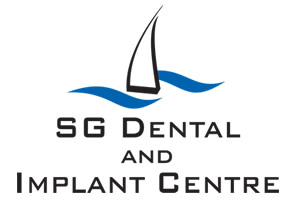What Causes Plaque And Tartar To Build Up On Our Teeth?
Burton dental hygienist, Alison Lowe, looks at the fundamentals of good oral care.
As patients, most people probably focus on the condition of their teeth when it comes to their oral health care. This is more likely to be the case if they have experienced a bad toothache or two in the past. There is no doubt that no one wants to have tooth pain, which can be very severe indeed, and obviously, no one wants to lose their teeth.
This is all well and good, and anything that encourages people to brush their teeth properly is only to be encouraged. There is another good reason why people should pay special attention when brushing though, and that is to control the buildup of plaque and tartar, not only on the teeth, but on the gum line too.
What is plaque?
Plaque is a sticky film that collects on the teeth and gums. It is made up of millions of bacteria. Not all of these are necessarily harmful, but some certainly are. If not controlled, over time these will not only cause enamel erosion, and potentially tooth decay, but potentially also gingivitis and even periodontitis, both forms of gum disease.
Plaque should not be confused with tartar. Plaque can largely be controlled with diligent brushing and flossing. Over time however, a hardened form of plaque called tartar builds up which causes a rough surface which attracts further bacterial and mineral build-up. This can only be removed by a hygienist cleaning known as a ‘scale and polish’ here at Mike Allen’s Dental Practice in Burton.
What causes plaque build up?
Bacteria are ever present in our mouth, and studies suggest that our mouths contain, on average, around seven billion bacteria (reference 1). This might seem a large number, but if insufficient cleaning of the oral cavity takes place, this number will become even higher.
We tend to think of bacteria as harmful, but some of these bacteria are actually helpful and start the digestive process by breaking down foods that we eat before we swallow them. Without these, our digestive system would be less efficient than it is, and our health almost certainly poorer.
By and large, the number of bacteria can be controlled by brushing, flossing and a regular scale and polish with the hygienist.
There may be times in our life when the number of bacteria spiral out of control. Sometimes this may be temporary, and good brushing will help to return to the mouth to normal. Sometimes though, this may be long term, and, when this is the case, the risk of gum disease and possible tooth loss is greatly heightened.
The following are some of the more common reasons why plaque becomes out of control.
Poor oral care – It goes without saying that if we don’t brush our teeth and floss between them as well, bacteria will collect and grow. If you have neglected your teeth cleaning regimen, we recommend that you arrange a visit to the hygienist for a clean and a discussion about how you can look after your teeth and gums better going forwards.
Smoking/excessive drinking – Both of these habits increase the risk of plaque build up. This is partially due to the effect of a dry mouth which is an ideal environment for bacterial growth. Smoking will also irritate the gums and restrict the flow of blood to the gums, making infections more likely. Our advice is to make a real effort to kick this habit.
Temporary illnesses – Even minor illnesses, such as a cold, can lead to plaque build up. This may partially be due to the body focussing its defences on attacking the cold virus, making it easier for bacteria to thrive. In addition to this, if we are feeling tired and run down due to our illness, we may be less likely to brush our teeth well enough, or even not at all. Generally speaking, if the illness is short lived and we return to a good cleaning regimen, little long term harm is likely to have been done.
Diabetes – Some illnesses, such as diabetes, can have a longer term effect on our oral health. Resistance to bacteria is weakened in the case of patients with diabetes and they are more prone to having gum disease. All is not lost though, and, in addition to watching what you eat and making sure to give your teeth and gums a thorough clean, seeing the hygienist more regularly for a professional clean (we suggest every two or three months) should help you to keep your gums in good health.
With not only our teeth threatened by gum disease, but increasingly, links being made between it and serious health issues such as heart disease, strokes, Alzheimer’s and even some form of cancers; taking good care of the health of our gums is increasingly important.
If you haven’t really given your gums the thought and care that they deserve, the time to correct that is now. As a first step, we recommend arranging to see myself or one of the other hygienists at Mike Allen’s Dental Practice for a clean and a discussion on your future oral health care. Working together, we can help you restore your gums to a healthy condition!
To make your appointment to see a dental hygienist at our Burton practice, please call us today on 01283 845345.
Alison Lowe – Dental Hygienist – GDC 4540
